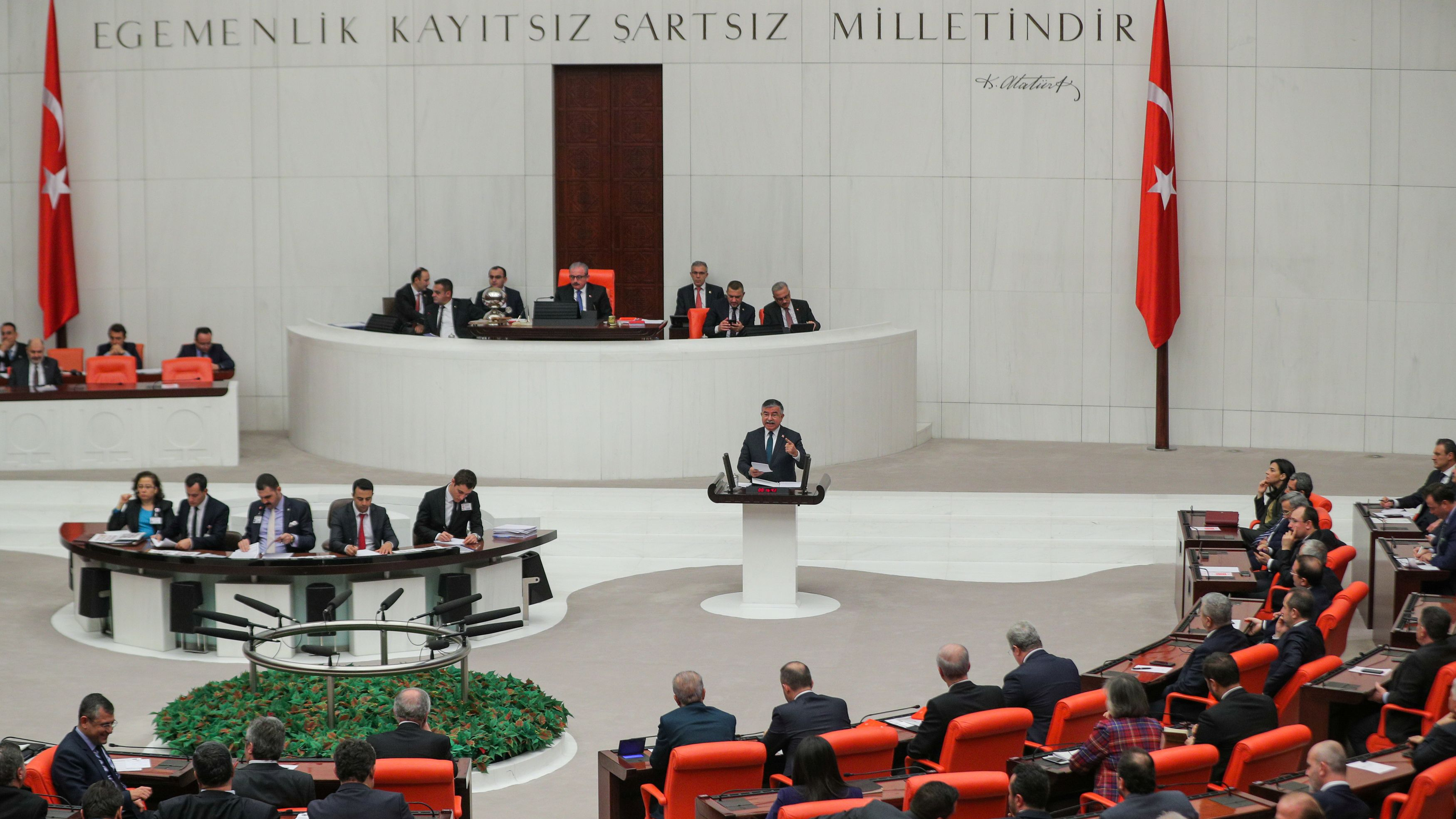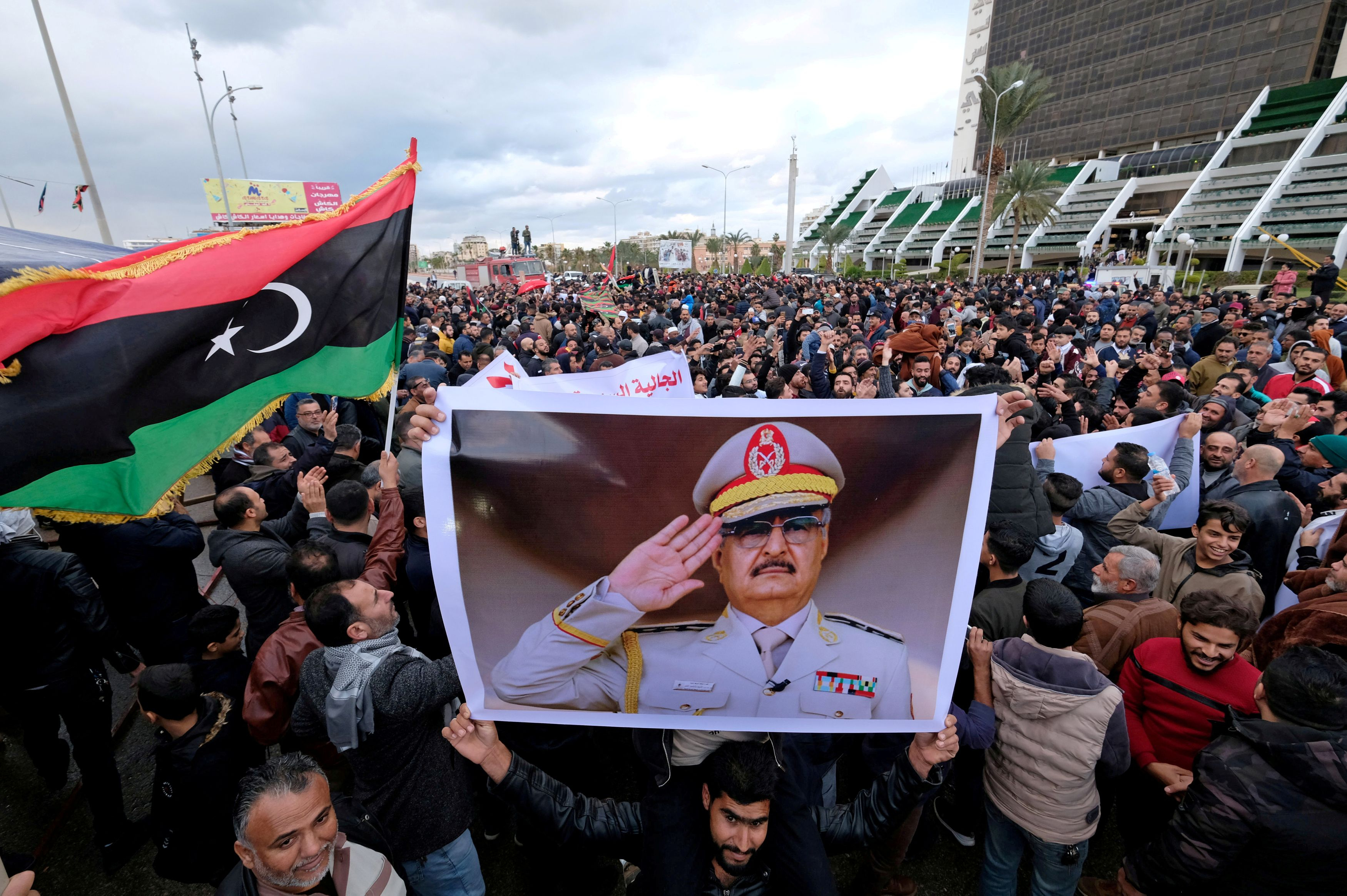On Thursday, the Turkish parliament approved a motion that gives Turkish President Tayyip Erdogan full control of the decision-making process regarding the potential deployment of Turkish troops in Libya.
Ankara is one of the biggest supporters of the UN-backed Libyan Government of National Accord, known as GNA.
This internationally recognized government based in Tripoli has been fighting intensified attacks by rival forces of general Khalifa Haftar of the Libyan National Army. On Friday, a day after the parliament's decision, rockets were fired near the Mitiga airport in Tripoli.
Flights have been suspended, shutting down the only functioning airport in Tripoli.
But Erdogan is determined to tip the balance in favor of the GNA by providing it with military support. The Turkish president had offered to send Turkish troops following the signing of two major deals in November with GNA Prime Minister Fayez Sarraj -- a maritime boundary agreement and a security deal.

Ismet Yilmaz, head of the Turkish parliament's national defense committee from the ruling AK Party, addresses lawmakers at the parliament in Ankara, Turkey, January 2, 2020. /Reuters Photo
Ismet Yilmaz, head of the Turkish parliament's national defense committee from the ruling AK Party, addresses lawmakers at the parliament in Ankara, Turkey, January 2, 2020. /Reuters Photo
For Turkey, the maritime boundary agreement is a bold, strategic move, one that also sends a message to other countries in the region. Ankara is feeling excluded from the Mediterranean as rival countries have been cooperating on energy projects. Greece, Israel, and Cyprus signed a trilateral agreement to build a pipeline that would carry natural gas from Israel's offshore fields to Europe. Erdogan's maritime deal with the GNA has infuriated Greece.
The Turkish parliament's approval of a potential deployment of troops to Libya has also drawn international criticism.
The White House announced that U.S. President Donald Trump called Erdogan and told him that the U.S. believes "foreign interference is complicating the situation," in Libya.
Egypt condemned the decision and a Russian parliament member, Dmitri Novikov, stated that a Turkish military presence would "only deteriorate the situation" in Libya. Russia's stance could be critical for Turkey as Moscow is supports the opposite side in the Libyan conflict -- Haftar's LNA forces.
Ankara wants to avoid any conflicts with Moscow as the two countries have massive economic and security deals in play. Last year, Ankara purchased an S400 missile defense system from Moscow and Russian President Vladimir Putin is expected to visit Istanbul for the launch of the TurkStream pipeline project on January 8. The decision to send troops to Libya will likely be high on the agenda when Erdogan and Putin meet.

Libyan protesters gather during a demonstration against the Turkish parliament's decision to send troops to Libya, in Benghazi, Libya, January 3, 2020. /Reuters Photo
Libyan protesters gather during a demonstration against the Turkish parliament's decision to send troops to Libya, in Benghazi, Libya, January 3, 2020. /Reuters Photo
Not everyone in Turkey supports it either; in parliament, the main opposition, Republican People's Party (CHP), voted against the motion as did the IYI Party and Kurdish HDP Party.
CHP leader Kemal Kilicdaroglu called on the government to urge the UN to send a peacekeeping force instead. In a tweet, he stated, "Turkey must take the lead for efforts to establish stability in the region and concentrate all diplomatic efforts in that direction."
Society in Turkey is also split on the matter. The supporters of the ruling Justice and Development Party known as AK Party would be more likely to be in favor of the motion – backing the president's stance.
However many CHP and HDP supporters are also questioning whether it's worth risking the lives of Turkish soldiers for a deployment overseas where Turks do not feel a direct security threat from. Turkey in October also launched a cross-border operation into northern Syria against the Kurdish YPG group, which Ankara considers a terrorist organization, and the government enjoyed high public support.
But Syria shares a long border with Turkey and Turks do understand and can feel a security threat at the border with Syria. With Libya – which does not share a border with Turkey – the sentiment is different, at least for now.
Either way, Erdogan has emphasized the move is in Turkey's best interest so it will now be up to him to decide when and at what capacity the Turkish military will get directly involved in the conflict in Libya.